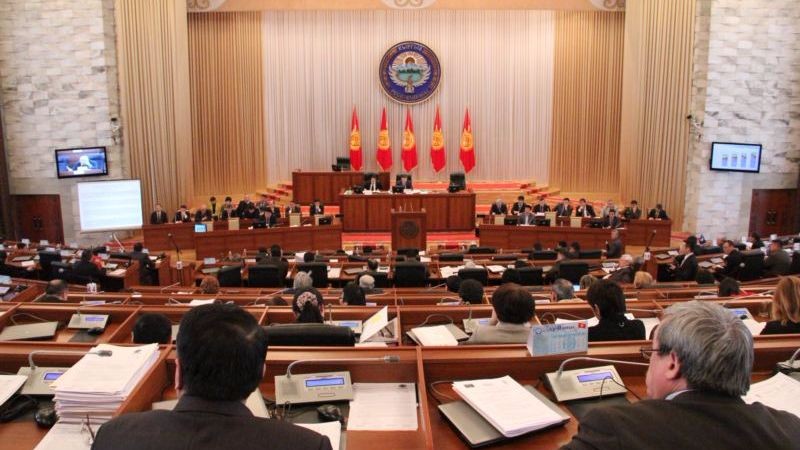While parliament has previously attempted to adopt foreign agent laws in Kyrgyzstan, this time the bill was co-signed by 33 MPs - a third of the parliament - and comes after President Sadyr Japarov's recent official visits to Russia.
The MPs who introduced the bill include the brother of the head of the National State Security Service and several politicians reportedly from the president's inner circle.
"I think this could lead to the same thing happening here as it did in Russia," said Anna Kapushenko, chief editor of OCCRP partner Kloop, an independent news outlet in Kyrgyzstan.
"We've seen it before: the absence of independent media and the absence of activists and rights defenders."
The group of MPs argues that the proposed law is necessary because many NGOs "interfere in the political life of the state... striving to shape public opinion" in order to destabilize the country.
The law will affect foreign NGOs as well as local NGOs financed from abroad or acting "on behalf of foreign organizations/people."
In the language of the bill, the MPs have avoided using the infamous term "foreign agents," instead referring to them as "foreign representatives."
NGOs falling under the definition of foreign representatives will have to proactively apply for that status, or their activities can be suspended for up to six months and their bank accounts frozen.
Once registered, organizations will have to provide the state with information about their activities and management, explain the purpose of all their expenses, and report on the finances they receive from foreign sources.
Additionally, foreign NGOs will have to undergo costly audits upon request by state institutions and publish reports every six months regarding their founders, current assets, sources of financing, and expenses.
The draft law would also empower authorities to fine individuals or sentence them for up to 10 years if they work for an NGO that incites citizens "to refuse to perform civic duties" or commit "unlawful acts." The bill does not offer precise legal definitions of these terms.
"The wording of the law is so vague that it can be interpreted in any way you want," said Kapushenko. "This suggests that these amendments to the law on NGOs will not only affect NGOs but the media as well."
Cholpon Dzhakupova, a former MP and the head of the human rights NGO Adilet, believes that the proposed amendment is unconstitutional as it violates the right to freedom of assembly.
"This is direct interference in the activity of legal entities," she said. "It is also discriminatory since other legal entities, such as religious organizations, trade unions, or political parties, are not subjected to this kind of pressure."
Parliament has not announced when it will review the draft bill, but before it can become law, the proposal will have to pass three readings and be signed by the president.
Kyrgyz MPs have been attempting to adopt a foreign agent law for years, but every attempt has failed due to public outrage and international criticism.
When the latest initiative was announced, several websites known to parrot Russian state propaganda began sharing their own lists of NGOs, media outlets, and individuals whom they claim to have identified as "foreign agents."


